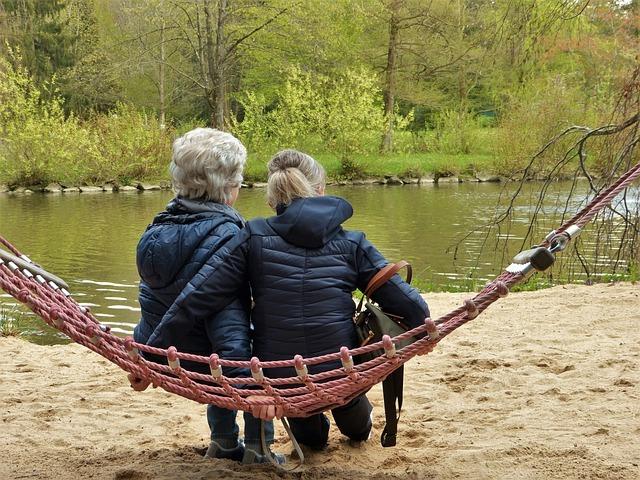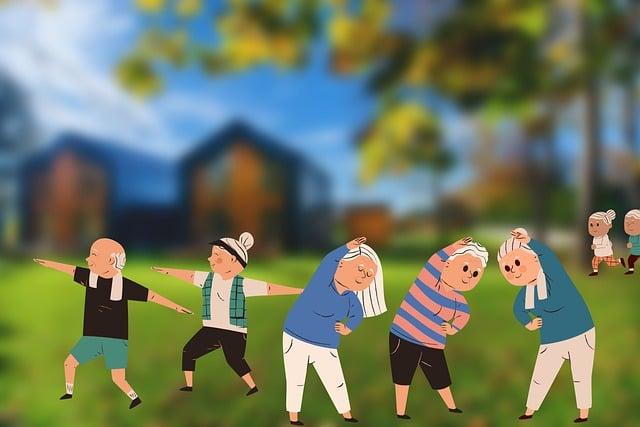As we navigate the complexities of aging, one of the most profound challenges facing countless families is supporting a loved one with dementia. This journey, often fraught with emotional and physical demands, calls for patience, understanding, and compassion. By equipping ourselves with practical strategies and insights, we can not only enhance the quality of life for seniors with dementia but also find greater fulfillment in our roles as caregivers. In this article, we explore essential tips for providing empathetic and effective support, emphasizing the importance of preserving dignity, fostering meaningful connections, and maintaining a nurturing environment. Whether you are a family member, friend, or professional caregiver, these guidelines aim to empower you with the confidence and knowledge to make a positive difference in the lives of those facing this daunting condition.
Creating a Safe and Comfortable Environment for Seniors with Dementia
- Design Thoughtfully: Organize the living space to minimize confusion and ensure ease of movement. Use contrasting colors to define different areas; for instance, paint the bathroom walls a soothing pastel color and use bright, non-slip mats for floors. Consider open shelves that allow seniors to easily spot what they are looking for without the frustration of searching.
- Familiarity First: Incorporate personal items that hold emotional significance for the individual. Display family photos, cherished keepsakes, and familiar objects in frequently used areas. This creates a comforting environment that reinforces a sense of identity and belonging.
- Safety with Technology: Utilize technology to enhance safety. Install motion sensor lights to prevent falls and use smart home devices to monitor activity. For instance, smart doorbells with cameras or home monitoring systems can alert caregivers to unexpected movement or when a senior may need assistance.
| Consideration | Action |
|---|---|
| Lighting | Install adjustable, non-glaring lights throughout the home. |
| Sound | Reduce background noise and incorporate calming music. |
| Flooring | Use anti-slip materials and avoid intricate patterns. |

Effective Communication Techniques to Connect with Loved Ones
- Empathize with Their Reality: When speaking with seniors experiencing dementia, step into their world. Whether they confuse the past with the present or misremember names, acknowledge their feelings without correction. This approach can build trust and reassurance.
- Use Simple, Clear Language: Simplify your sentences and speak slowly. Avoid complex questions and long explanations. A gentle tone paired with straightforward language can reduce confusion and improve comprehension.
- Embrace Non-verbal Communication: Understand that gestures, facial expressions, and touch might communicate more than words. Maintain eye contact and keep a friendly demeanor to make your loved one feel secure and valued.
| Technique | Description |
|---|---|
| Active Listening | Show genuine interest by nodding and responding to emotional cues. Be patient and give them time to express their thoughts. |
| Visual Aids | Enhance understanding with photos and objects to help connect the dots when words may fail. |

Engaging Activities to Foster Mental Stimulation and Emotional Well-being
Incorporating activities that engage both the brain and emotions can significantly enhance the quality of life for seniors with dementia. Here are some creative activities that friends, families, and caregivers can easily integrate into daily routines:
- Music Therapy: Encourage listening to favorite songs or singing along to tunes from the past. Music has a unique ability to tap into memories and emotions, often evoking joy and nostalgia even when verbal communication becomes challenging.
- Gardening: Whether it’s potting a plant indoors or tending to a small flowerbed outside, gardening activities can provide a sensory-rich experience. The texture of soil, the scent of flowers, and the pleasure of nurturing life can be soothing and revitalizing.
- Story Telling: Use photo albums or old magazines to spark storytelling. Encourage seniors to share memories or create fictional tales. This not only exercises cognitive functions but also boosts self-esteem by honoring their life stories.
For a quick reference on how different activities can impact mental stimulation and emotional health, consider the following table:
| Activity | Mental Stimulation | Emotional Benefit |
|---|---|---|
| Music Therapy | Enhances Memory | Reduces Anxiety |
| Gardening | Promotes Sensory Engagement | Boosts Mood |
| Story Telling | Improves Communication | Fosters Connection |

Strategies for Managing Challenging Behaviors with Compassion and Patience
Dealing with challenging behaviors in seniors with dementia requires a blend of empathy, understanding, and strategic action. It’s important to prioritize communication and create a supportive environment that fosters respect and calm. Regularly engage with them through words they grasp easily or by using gentle gestures to soothe agitation. When their behavior becomes difficult, try to identify any triggers—sounds, lights, or even unfamiliar faces—that might be contributing to increasing stress.
- Maintain routines as much as possible to avoid confusion and distress.
- Ensure physical comfort by checking for signs of hunger, thirst, or discomfort.
- Involve them in gentle activities that they enjoy, such as listening to music or painting.
A positive environment greatly influences behavior. Switch from correction to redirection—gently steer conversations or activities to something more pleasant or engaging. Utilize a friendly tone and maintain eye contact to establish connection and trust. When situations escalate, validate their feelings by acknowledging what may be troubling them, rather than disregarding their perspective.
| Situation | Strategy |
|---|---|
| Restlessness | Provide a calming activity, like folding towels. |
| Anger or Frustration | Pause, listen actively, and respond with empathy. |
| Confusion | Reorient with simple, clear explanations. |
In Conclusion
supporting seniors with dementia is a journey that requires patience, understanding, and compassion. By implementing these tips, you can create a nurturing environment that respects their dignity and enhances their quality of life. Remember, each individual’s experience with dementia is unique, so stay flexible and attentive to their evolving needs. By fostering open communication and maintaining a calm and supportive atmosphere, you can make a meaningful difference in their daily lives. As you continue this important work, take time to care for yourself as well, ensuring that you have the strength and resilience to provide the best support possible. Together, we can empower our loved ones to navigate the challenges of dementia with grace and dignity.








































